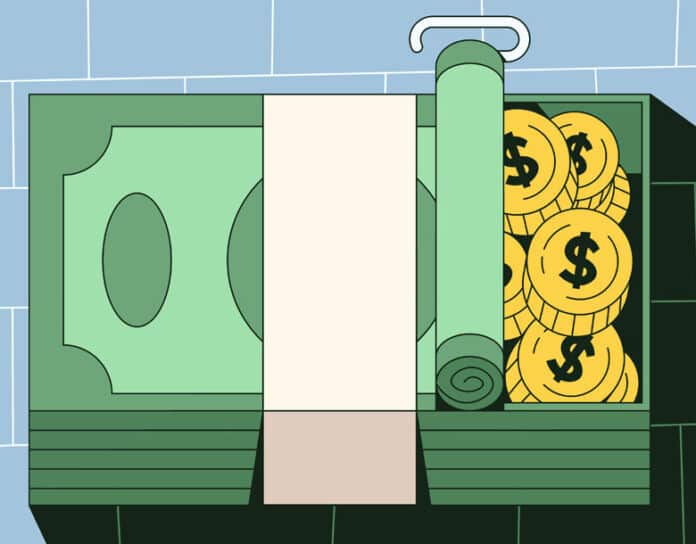The tax plan released Wednesday by House Republicans would reduce federal tax revenue by $4.1 trillion over the next decade while increasing GDP by 0.6 % in the long run, according to an analysis by the Tax Foundation.
Deficit financing would require higher interest payments, canceling most of the economic benefit through higher debt, the organization warned.
Other projected effects include an increase in hours worked equivalent to 794,000 full-time jobs, a decrease in capital stock of 0.2% and a decrease in pre-tax wages of 0.1%, the Tax Foundation said in a statement.
The proposal released by the House Ways and Means Committee addresses the expiration of the 2017 Tax Cuts and Jobs Act (TCJA) and includes some of President Donald Trump’s campaign promises, according to the statement.
Tax revenue would decrease 19% to $3.3 trillion over 10 years before added interest costs, the Tax Foundation said. A budget resolution previously adopted by the House authorizes a $4.5 trillion increase in the deficit from tax cuts over the next decade if spending is reduced by $1.7 trillion.
The House Ways and Means Committee proposal would:
- Permanently extend the lower tax rates and brackets from the Tax Cuts and Jobs Act of 2017 enacted during Trump’s first term
- Temporarily increase the standard deduction and child tax credit
- Increase the state and local tax (SALT) deduction cap to $30,000 for some taxpayers
- Include deductions for tips, overtime pay and senior citizens
The plan also would raise taxes on the investments by large universities and foundations, reverse some Biden-era green energy tax breaks and revise rules on nonprofits.
By perpetuating the TCJA tax cuts, the legislation would prevent tax increases on 62% of taxpayers, the Tax Foundation reported.
But the proposal would sunset pro-growth provisions like bonus depreciation and research and development expensing, and include “narrowly targeted” provisions, meaning economic growth would remain “on the table” and the tax code would become more complicated, the Tax Foundation said.
The organization urged lawmakers to make permanent full expensing of all investment to support long-term growth and investment.
Additionally, the Tax Foundation projected that the Trump tariffs will counteract most if not all the long-run economic benefit of the tax bill.
The Tax Foundation detailed a long list of proposed changes to personal taxes, including:
- Make permanent the expiring rate and bracket changes of the TCJA and raise the inflation adjustment for all brackets except the 37% threshold
- Make permanent expiring standard deduction levels and temporarily (from until the end of 2028) increase the standard deduction by $2,000 for joint filers, $1,500 for head of household filers, and $1,000 for all other filers
- Make permanent elimination of the personal exemption
- Make the state and local tax (SALT) deduction cap permanent at the higher threshold of $30,000, phasing down to $10,000 at a rate of 20% starting at modified adjusted gross income of $200,000 for single filers and $400,000 for joint filers
- Make permanent the $750,000 limitation and the exclusion of interest on home equity loans for the home mortgage interest deduction
- Limit the value of itemized deductions to 35 cents on the dollar
- Make permanent the expiring child tax credit, increasing the maximum credit to $2,500 through the end of 2028 and inflation adjusting the $2,000 maximum after then
- Make permanent the increase in the alternative minimum tax exemption and phaseout
- Repeal several green tax subsidies, mostly intended for individuals, such as electric vehicle and residential energy efficiency credits, after 2025
- Make tip income deductible through 2028 for individuals in tipped industries, excluding highly compensated employees
- Make auto loan interest deductible for itemizers and non-itemizers for autos with final assembly in the United States through 2028
- Increase the additional standard deduction for seniors by $4,000 through 2028 and extend the increase to itemizers
- Make overtime compensation deductible for the premium portion of overtime for itemizers and non-itemizers through 2028, excluding highly compensated employees and qualified tips
You can read the full Tax Foundation analysis here.







